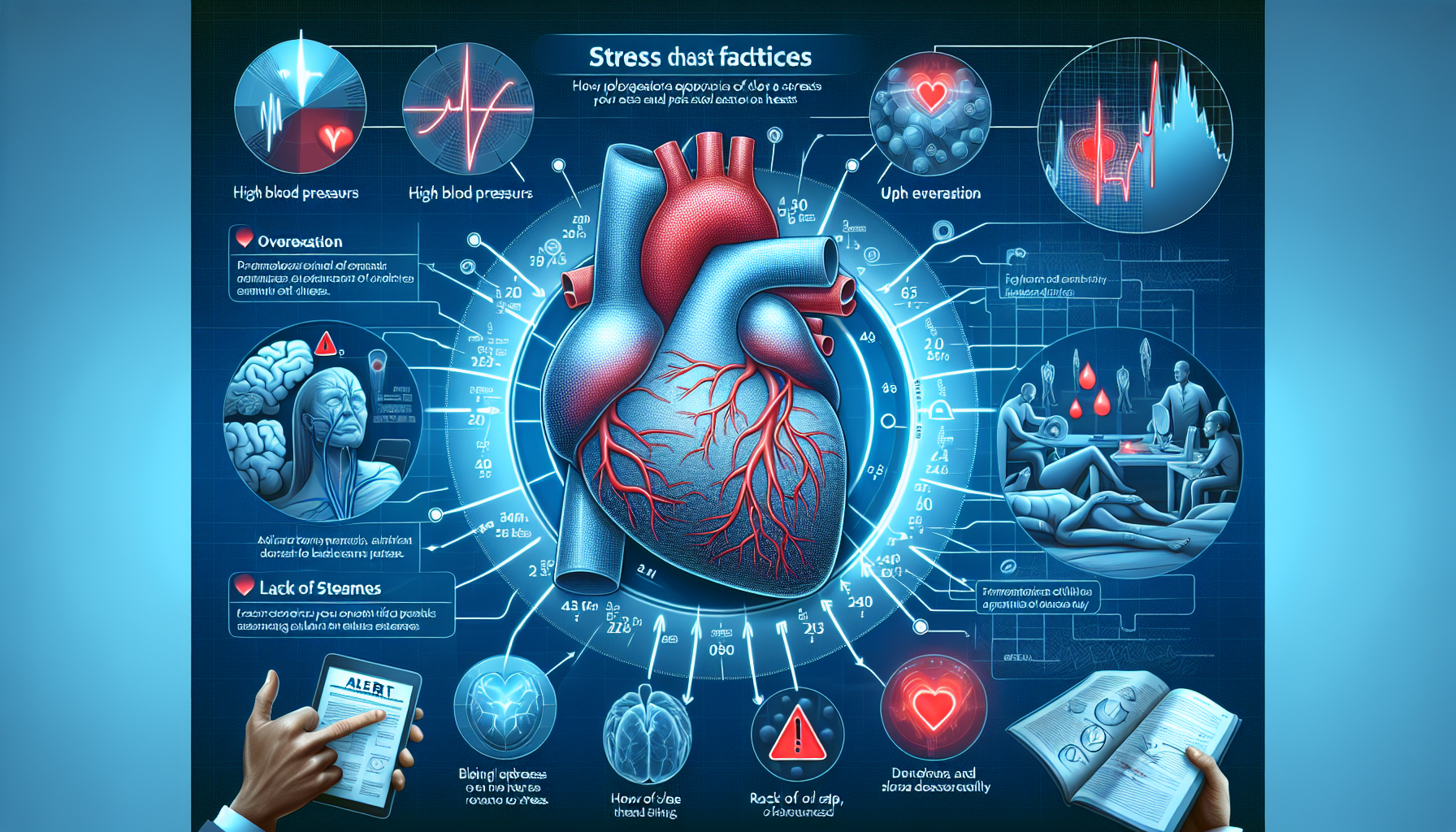Stress is an inevitable part of life. It’s the body’s reaction to any change that requires an adjustment or response. The body reacts to these changes with physical, mental, and emotional responses. While stress is a normal part of life, excessive stress can have a profound negative impact on your heart health.
Understanding Stress and Its Pathways
Stress can be acute or chronic. Acute stress is short-term and is the body’s immediate reaction to a new challenge, event, or demand, such as meeting a deadline or avoiding a car accident. Chronic stress is stress that lasts for a longer period of time, such as financial worries, unhappy marriages, or trouble at work.
When you’re stressed, your body responds as though you are in danger. It releases hormones, such as adrenaline and cortisol, which ratchet up your heart rate, blood pressure, and energy supplies. Cortisol, the primary stress hormone, increases sugars (glucose) in the bloodstream, enhances your brain’s use of glucose, and increases the availability of substances that repair tissues.
However, the body’s stress-response system is usually self-limiting. Once a perceived threat has passed, hormone levels return to normal. As adrenaline and cortisol levels drop, your heart rate and blood pressure return to baseline levels, and other systems resume their regular activities. But when stressors are always present and you constantly feel under attack, that fight-or-flight reaction stays turned on.
The Direct Impact on Your Heart
The constant increase in heart rate and the elevated levels of stress hormones and blood pressure can take a toll on the body. This long-term ongoing stress can increase the risk for hypertension, heart attack, or stroke. Research suggests that the physical aspects of stress contribute to the wear and tear on your body. This includes damage to your arteries, which can lead to heart disease.
It’s also worth noting that stress influences behaviors and factors that increase heart disease risk: high blood pressure and cholesterol levels, smoking, physical inactivity, and overeating, for example. For detailed insights on managing these risks, visit Understanding Cardiovascular Disease: Risks and Prevention.
The Role of Stress in Behavioral Responses
Some people choose to deal with stress in unhealthy ways that increase their risk of heart disease. This can include overeating or eating unhealthy foods, drinking alcohol, or smoking. Stress can also lead to decreased motivation to remain physically active, and these behaviors can lead to increased blood pressure and body weight, further increasing heart health risks.
Stress Management for Heart Health
Managing stress is an important part of protecting your heart. Incorporating stress management techniques, like exercise, relaxation, and healthy eating, can improve your overall health. For example, Exercise and Cardiovascular Health: The Heart Connection provides valuable information on how regular physical activity can help reduce stress and prevent heart disease.
Exercise: A Vital Stress-Reliever
Physical activity increases the production of endorphins, which are natural mood lifters. It also helps you sleep better and reduces stress. Aerobic exercises, including jogging, swimming, cycling, walking, gardening, and dancing, have been proven to reduce anxiety and depression.
Mindfulness and Relaxation Techniques
Practices such as yoga, meditation, deep breathing, and mindfulness can reduce stress and improve your emotional response to stressors. According to a niche resource from the National Institutes of Health, mindfulness meditation has been shown to have a beneficial effect on heart rate variability, which is an indicator of heart health.
Healthy Eating Habits
Consuming a balanced diet with plenty of fruits and vegetables, whole grains, and lean proteins can help you feel better equipped to handle stress. A heart-healthy diet can also prevent the buildup of plaque in your arteries, which is a significant cause of cardiovascular disease. The article How to Maintain a Heart-Healthy Diet is an excellent resource for anyone looking to improve their dietary habits to support their heart health.
Adequate Sleep
Sleep plays a crucial role in your physical health. It’s involved in the healing and repair of your heart and blood vessels. Ongoing sleep deficiency is associated with increased heart disease risk. To understand more about the role of sleep in maintaining a healthy heart, consider reading The Importance of Sleep in Cardiovascular Health.
Emerging Research on Stress and Heart Health
Emerging research suggests that there may be a genetic component to how stress affects heart health. Some people may be genetically predisposed to experience more significant health effects from stress. A study published in a peer-reviewed journal found that individuals with a certain genetic variation experienced higher rates of heart disease when exposed to chronic stress.
External Support Resources
In addition to managing stress through personal habits, it’s often helpful to seek external resources:
- American Heart Association’s Stress Management Tips provides practical strategies for reducing stress.
- The Stress-Heart Disease Connection by Johns Hopkins Medicine offers in-depth exploration of how stress affects the heart.
- Mindfulness-Based Stress Reduction Programs can teach you how to systematically address the stresses in your life.
Remember, while stress is a natural emotional and physical reaction to life experiences, excessive stress can lead to serious heart health issues. It’s crucial to recognize the symptoms of stress and take proactive steps to manage it. By incorporating healthy lifestyle habits, mindfulness practices, and seeking external resources when needed, you can help protect your heart against the adverse effects of stress.



